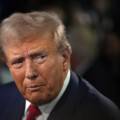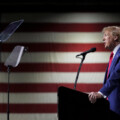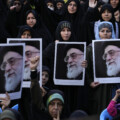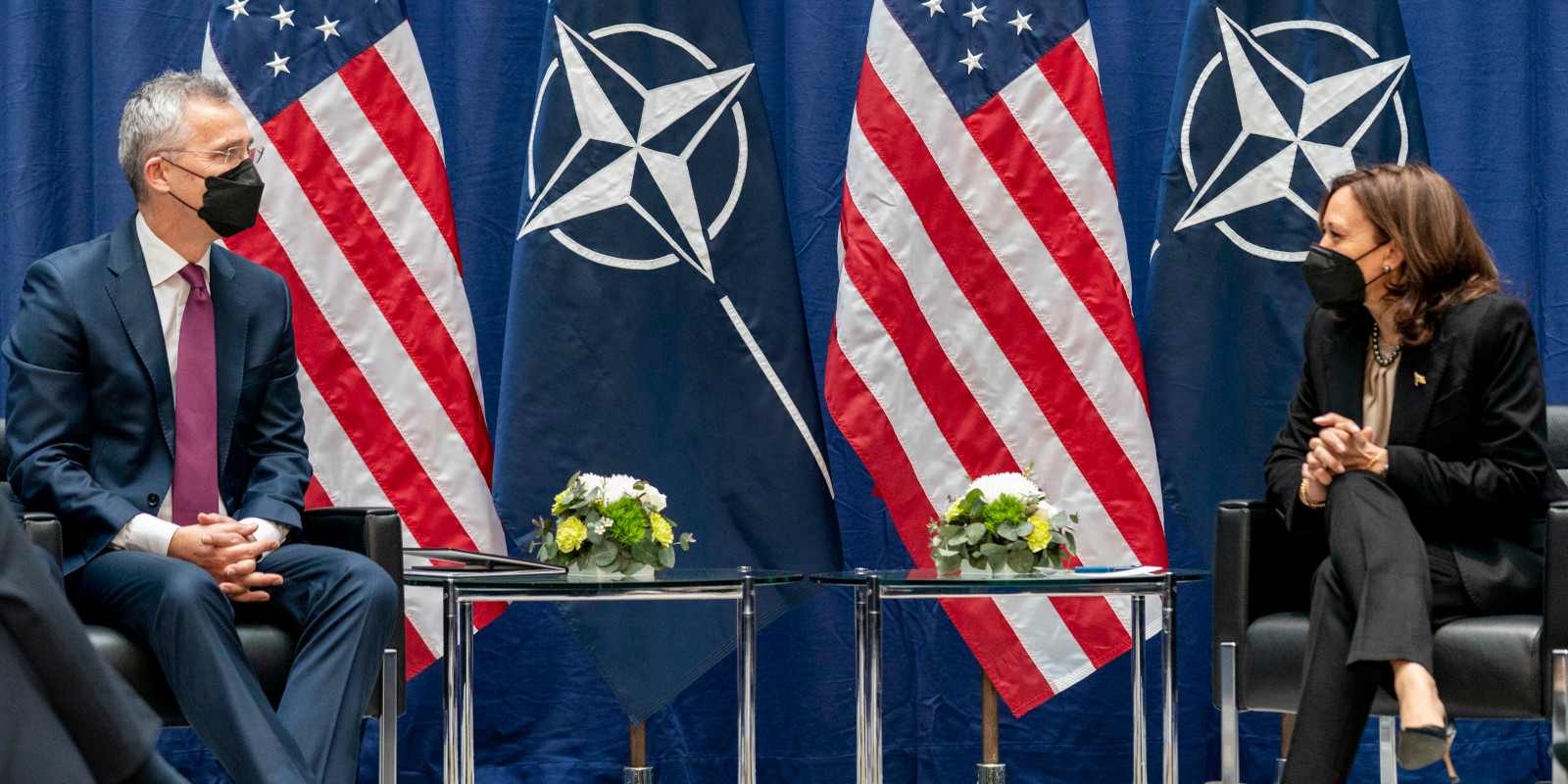Today’s episode of Hub Dialogues features host Sean Speer in conversation with Andrew Bacevich, president of the foreign policy think-tank, the Quincy Institute for Responsible Statecraft, about his timely and relevant book, After the Apocalypse: America’s Role in a World Transformed. This interview, conducted in early February prior to Russia’s invasion of Ukraine, touches on America’s foreign policy failures following the Cold War, realism, and why the U.S. should focus its attention closer to home.
You can listen to this episode of Hub Dialogues on Acast, Amazon, Apple, Google, Spotify, or YouTube. A transcript of the episode is available below.
Transcripts of our podcast episodes are not fully edited for grammar or spelling.
SEAN SPEER: Welcome to Hub Dialogues. I’m your host Sean Speer, editor-at-large at The Hub. I’m honoured to be joined today by Professor Andrew Bacevich, President of the foreign policy think tank the Quincy Institute for Responsible Statecraft, Professor Emeritus of International Relations and History at Boston University, and author of several books, including his most recent, After the Apocalypse: America’s Role in a World Transformed. Thank you for joining us, Andrew, and congratulations on the book.
ANDREW BACEVICH: Thank you, and I’m very happy to be with you.
SEAN SPEER: Let’s start big picture. You observe in the book that the apocalypse to which the title refers didn’t happen overnight. How did it happen and how has it come to manifest itself, in your opinion?
ANDREW BACEVICH: I was actually down in Florida with my wife at the time that COVID really broke, and I began to notice that the term “apocalypse” was appearing in the media. It appeared in reference to the pandemic, it certainly appeared in reference to the climate crisis, you know, the fires in the Pacific and Pacific Northwest, and, as an example, the storms. I think many observers of American politics saw Trump as an apocalyptic character; Trumpism as something that did not spell very much promise for American politics. So, I was just picking up on the term and trying to think about what it all meant, what the attitude meant, and that was what led to the book itself.
But to your point, yes, it’s not as if the “American Apocalypse” came out of nowhere in 2020. You know, my beat tends to be U.S. foreign policy, U.S. national security policy. It has been my view for going on 20 years, since 9/11 really, that we have taken a fundamentally wrong turn, and the essence of that wrong turn relates to American expectations about what military power can do. And those false expectations have led to a series of catastrophes, most prominent of which are the Iraq and Afghanistan wars that have done great harm to my country in terms of lost lives, damaged money, wasted trillions of dollars, and, not insignificantly, the damage that we did in other countries, to other peoples, that we presumably were intent on liberating. So, it was all of that, I think, sort of piled up that caused me to write this book.
SEAN SPEER: One other nomenclature question before we dig into some of your book’s key ideas and insights: what is “the Blob”? Who comprises the Blob, and what’s its role in the history of U.S. foreign policy?
ANDREW BACEVICH: From the point of view of the Quincy Institute, which you mentioned, I appreciate that the Blob is the enemy. The Blob is the foreign policy establishment. This is a term that was used during the Obama administration to complain about the difficulty of bringing about any significant change because the establishment, the Blob was committed to a set of propositions and they wouldn’t budge.
What is the Blob all about? Well, the Blob is committed to American global primacy. The Blob is committed to the proposition that the world as it existed back in, let’s say, 1946 or 1947, is still the world that exists today. Or at least or at least it ought to be, and therefore the United States of America should occupy a privileged position in the global order. And the Blob is also committed to the proposition that American military primacy is the key to maintaining order and to protecting American freedom.
There were people in the Obama administration who were skeptical about this proposition. We believe that skepticism is absolutely appropriate, so, we’re against the Blob at QI.
SEAN SPEER: Andrew, as you allude, a core idea of the book and much of your other thinking and writing is the notion that American exceptionalism is wrongheaded and contributed to fundamental mistakes in U.S. foreign policy. Why is the idea of American exceptionalism mistaken? And what, in your view, have been its consequences?
ANDREW BACEVICH: So, let me begin answering the question on a personal note, and that is that I was born in 1947. I was born at the beginning of the Cold War; both of my parents were World War Two veterans. So, I grew up during the Cold War, and I grew up during the Cold War by no means questioning the premises of Cold War orthodoxy. That is to say that communism posed an existential threat to the United States and to freedom itself, that the Soviet Union was the leader of a great block, a monolithic block of communist powers, that we needed to resist. That’s the world I grew up in; that’s the worldview that I accepted.
And when I became a serving officer in the late 1960s, and then served until the end of the Cold War, that’s the way I saw reality. Where the blinders fell off for me was in the wake of the Cold War. Somehow, rather, in growing up, I had reached the conclusion that what we did during the Cold War was in response to an emergency. I never thought that the emergency would end, I think most people during the Cold War thought the Cold War was going to go on forever. It’s just gonna define reality until the end of time. But behind all that was a notion that if it ever ended, then the United States of America, I thought, could once could revert to being a normal nation. And that didn’t happen.
Indeed, once the Cold War ended, the American expectations of what American global leadership should accomplish actually increased. I mean, many of the folks listening will be familiar with the arguments made at a time about the end of history. The notion that American style, liberal democratic capitalism was the only approach to governance that could possibly work, and therefore everybody else was going to fall in line enjoying the party. Combined with the expectation—again, I’m reflecting American opinion at the time—that if anybody objected, if anybody didn’t get in line, then superior American military power was available to provide the necessary discipline to move the end of history even further along to the end of history. What happened was, again, as I was observing events, the militarization of U.S. policy in unprecedented ways, a willingness to intervene for all kinds of reasons, in all kinds of places.
That helped to set the stage for 9/11. And then, in the wake of 9/11, this American militarism, informed by American exceptionalism—remember, we weren’t just going into Iraq to overthrow Saddam Hussein, we were going to democratize the country, and this was the expectation. Once we’re finished democratizing Iraq, we’d go ahead and democratize the rest of the region. That was supposed to happen in the eyes of the architects of our post-9/11 strategy. Of course, none of it happened. What happened was catastrophic.
One of the things that troubles me about my country is there still has been no real reckoning for how disastrous the response to 9/11 was. Again, not simply for us, but for others, quite frankly, probably for Canada, too, because if I find if I’m correct, there were more Canadian soldiers killed in Afghanistan than had been killed anywhere since the Korean War.
Often, as I reflect on our military misadventures, I asked myself, “What good did it do? You know, what good did we do in Iraq? Or Afghanistan?” I only can wonder, and then I’m presumed to make judgments here. But I have to wonder if Canadians ask themselves the same question with regard to Canada’s participation in the misbegotten Afghanistan war? We certainly did not end on a positive note. So, the events that coincided with the pandemic, climate crisis, the election, the presidential election of 2020, all of that kind of combined led me to write this book.
SEAN SPEER: As an alternative to this conventional wisdom guiding U.S. foreign policy for the better part of the past 20 years, and indeed beyond, you call for a commitment to realism. What does realism mean to you? And what would be some of the practical consequences of a more realist American foreign policy?
ANDREW BACEVICH: Well realism, I think, it begins with “Let’s see the world as it is, not as we might like it to be.” And realism, I think, also begins with an acknowledgment that there are limits to American power and to American wisdom. So, this whole “end of history: notion is ridiculous if you go back and look, for example, at George W. Bush’s speeches in the wake of 9/11. Or even more importantly, read his second inaugural address’s stunning claims about what the United States is called upon to do. So, real realism implies shedding American exceptionalism, and it implies being respectful of war. What do I mean by that? What I mean by that is that war tends to be uncontrollable.
We live in an age in which we think that advanced technology endows us individually, even more important, collectively, with the capacity to anticipate, to control. And certainly, that thinking was very much in existence in military circles after 9/11 when we went dashing off into Afghanistan, and then Iraq. What we experienced in both of those wars, that was the reality; that there is something about the nature of war that defies our efforts to understand and to enter control. There are plenty of philosophers of war, Clausewitz would be a good example, who’ve been saying that for decades, and for centuries, and we persuaded ourselves after the Cold War that all those things didn’t apply to us any longer. And that got us in big trouble.
SEAN SPEER: As the book outlines this alternative intellectual framework for guiding American foreign and defense policy, one point that might interest Canadian listeners is that you argue U.S. policy should focus more on North America, including Canada and Mexico. Do you want to talk a bit about America’s relationship with Canada and how you think it ought to change?
ANDREW BACEVICH: Sure, but let’s begin with the context within which I tried to make that point. The context is this: starting right around the time when I was born in 1947, the national security establishment—which is just being itself being born at that time—the national security establishment reached the conclusion that the greatest threats to the safety and well-being of the American people were way out there somewhere; that they were in Europe, that they were in East Asia, and beginning in the 1990s, that they were in the Persian Gulf. Proponents of this idea also insisted that the necessary response to those threats in Europe and East Asia in the Persian Gulf was a military response. We needed to build to maintain massive military power designed for power projection.
The idea was not to defend California. The idea was to defend Germany, or South Korea, or the Persian Gulf. We invested enormous sums of money in order to build that military establishment and we made very substantial sacrifices. In Korea, for example, the Korean War, in Vietnam, which was a Cold War, and in many sorts of lesser places. My conclusion in this post-cold war, post-9/11 era is that the greatest threats to the safety and well-being of my countrymen are far closer to home and that the priority of the national security establishment ought to be to provide for the safety and security of the American people where they live. That’s the key to it. Not out there; where they live now.
Some of your listeners may say, “Well, obviously the guy is arguing about isolation.” But no, I’m not arguing to forget about Europe, and East Asia, and even the Persian Gulf—although I think we could forget about that. I’m arguing that our priorities are warped, that what ought to come first is protecting the American people where they live and to recognize that to the chief threats that the American people are facing, the antidote is not military power.
I mean, if our problems begin with the pandemic’s catastrophic damage to the environment, porous borders, not least of all, a deterioration of our own internal unity in the loss of a conception of the common good. Well, military power isn’t going to do any good in response to those things. So, closer to home, emphasizing instruments other than military power, that’s where I’m coming from in this book.
And then you say, “Well, then it’s trying to think a little geographically or geopolitically, how does that alter one’s perspective on the world?” And my argument is that, again, it doesn’t make the rise of China of no consequence whatsoever. I’m not arguing that. But I think Canada and Mexico turn out to be the most important countries in the world for the United States of America.
And so, I propose in the book the creation of—Canada and Mexico have to sign up to this proposition—I propose the creation of a North American Security Zone in which our three countries would collaborate in addressing the threats to our safety and well-being, again, where we live. And that implies a radical revision of the national security paradigm, which has existed ever since the immediate aftermath of World War Two, but I think that’s what we need, and that’s the argument that the book makes.
Now, your listeners might say, “How could he possibly draw a comparison between Canada and Mexico?” And I don’t mean to do so. Those are two different countries, different histories, different cultures, different problems sets. I’m not trying to say that the two countries are alike, but it seems to me as a casual observer, I guess, of Canadian national security, that Canada faces some significant challenges with regard to sovereignty, territorial sovereignty. These problems are exacerbated by climate change, which is making the northern provinces more accessible, inviting intrusion by outside powers. It may see an opportunity to exploit resources up in the Canadian north.
Well, I would argue that the United States of America has a profound interest in helping to ensure the protection of Canadian sovereignty. And if Canada as a country, which has a relatively limited population, needs some assistance in creating the wherewithal to protect Canadian borders, Canadian airspace, then it would make all the sense in the world, to my mind, for us to step up to the plate and provide assistance, not because we’re good guys, but because the wellbeing of Canada is directly connected to the wellbeing of the United States of America.
So, here we are, as we speak, worrying about the possibility of war in Ukraine. President Biden’s been quite explicit in saying there will be no American soldiers that are going to go fight in Ukraine. I hope he knows what he’s talking about. But the fact of the matter is this is a national security crisis centered on the claim that Ukraine is a vital national security interest of the United States of America. And I’m saying, no it ain’t. Could be—no is—a vital national security interest of Poland, of Germany, which, of course, is not stepping up to the plate, arguably of Europe more broadly. But it’s not a vital national security interest in the United States of America. So, our priorities are screwed up. And also, what’s screwed up is that we think that the way to provide for our own wellbeing is to spend more money, give more money to the Pentagon, which hasn’t worked out very well lately.
SEAN SPEER: I think our listeners and viewers would respond positively to the idea of reviving the economic and security relationship between our two countries, especially because, as you say, we face a series of shared threats.
Let me pick up the question of China, which you alluded to in your last answer. It has been responsible for cyberattacks on both of our countries, listeners, of course, are very familiar with the unlawful detention of the two Michaels, and any number of issues where the U.S. and Canada have shared interests vis à vis China.
What do you think of the idea that the U.S. and China are entering a Cold War? Is that a useful frame for thinking about the geopolitical and technological rivalry? Or do you think that it risks obscuring more than it clarifies?
ANDREW BACEVICH: I don’t think it’s useful at all. In fact, I think it’s probably dangerous. Let’s back up a second, thinking more broadly about what we were just talking about. You know, borders, pandemics, problems of that ilk, which I think are extraordinarily important, but I also believe that there is an overarching threat, or an overarching common threat to the United States to Canada, and oh, by the way, to the People’s Republic of China, and what is that threat? That threat is the climate crisis. I mean, that is what’s going to get us all unless we can collectively, internationally devise some kind of an effective response. I’m not a climate scientist, but it seems like we better do that. Pretty darn quick. So, to the extent that the U.S. relationship with the People’s Republic of China becomes defined as a new version of the Cold War, then I guess I would expect that the prospect of positive collaboration between the world’s two biggest polluters becomes more difficult.
So, I don’t pretend to know what President Xi thinks, but it seems to me that if indeed the climate crisis is common threat number one, then we need to work very, very hard to find ways to mute the adversarial relationship between the United States and the PRC. It’s not going to go away. I accept the fact that the United States and China are and will continue to be adversaries. The question is, what is the character or the content of that adversarial relationship? And it’s easy for me to say, not easy to do. We need to find a way to somehow carve out climate as an arena in which we will find ways to collaborate, even if we’re still arguing about the implications of their one belt strategy.
SEAN SPEER: Let me just ask you a penultimate question. You’ve been advancing the case for a more humble and restrained U.S. foreign policy for a long time. As you said earlier, for most of it, you were a minority voice. In recent years, however, there seems to be a growing audience, including amongst the U.S. public for your vision. What’s your sense of things? Is there a sea change happening in how American policymakers think about the country’s foreign policy?
ANDREW BACEVICH: No, there’s not a sea change. There may be potential to bring about a sea change, and indeed, that’s why the Quincy Institute exists, to try to promote real change. But for example—again, some people will disagree—but I think that post-9/11, U.S. policy has been a catastrophic failure, look no further than Iraq. Look no further than Afghanistan. But as an American observing the American scene, I don’t see a heck of a lot of reflection stemming from that. It is fascinating that Congress recently approved the next Pentagon budget; the Pentagon budget, I think it’s $25 billion larger than the Biden administration had asked for, and they had asked for an increase.
So, you might think that in the wake of Iraq and Afghanistan, there’ll be considerable political insistence on critically examining how much money we’re spending on the military and where it goes. And what we’re getting for our money is remarkably little. So, I do think that there is a potential for us to help to bring around a change in thinking in the United States about our role in the world, one that was not as seduced by notions of American exceptionalism, and one that was more wary about the dangers of misusing American military power. But I don’t think we’re there yet.
SEAN SPEER: As you say, a key mission of the Quincy institute is to try to catalyze that change in both popular and policy thinking. Let’s just end, Andrew, on a personal note. What has been your experience as a heterodox and minority thinker and writer in the face of the Blob? Have you faced social costs over the past two decades in which the consensus was so overwhelming? I think, for instance, of the votes to authorize force in Iraq where virtually no one was on the other side. It would be great to get some personal reflection on what it’s been like to be such a lone voice over the past couple of decades.
ANDREW BACEVICH: Not sure I know where you’re going with this question, but I gotta tell you, I’m not significant enough to have people sort of push back, or denounce me, or attack me. I would say, and I’m being serious now, that I find encouragement in being welcomed in many quarters, from time to time. Not often, from time to time, I get to write something for The New York Times. Less frequently, but from time to time, I get to write something for The Washington Post. And citing myself, but I think it’d be what I should be saying is, voices like mine do form part of the debate, and that’s encouraging.
But I think people in my camp, we call ourselves restrainers, and people in the restraint camp also need to be realistic. Recognize that we’ve got a long, we’ve got a long way to go. But it’s a fight worth fighting. And certainly, we in the Quincy Institute believe that we’re in for the long haul. But we think our cause is a good one.
SEAN SPEER: Well, for listeners who want to understand more about that cause, you can read After the Apocalypse: America’s Role in a World Transformed. Professor Andrew Bacevich, thank you so much for joining us for today’s Hub Dialogue.
ANDREW BACEVICH: No, thanks for having me on. It’s fun.
Recommended for You

Patrick Luciani: From the courts of the Popes to Putin’s plans to challenge the West—Here are the top five books I reviewed last year

Migrants will flood Canada’s southern border and a tactical nuke will be used in war: The Hub’s can’t-miss predictions for 2025

Trump will be a lame duck and human trafficking will be a major problem: The Hub’s can’t-miss predictions for 2025

Thomas d’Aquino: A Christmas message for President-elect Donald Trump



